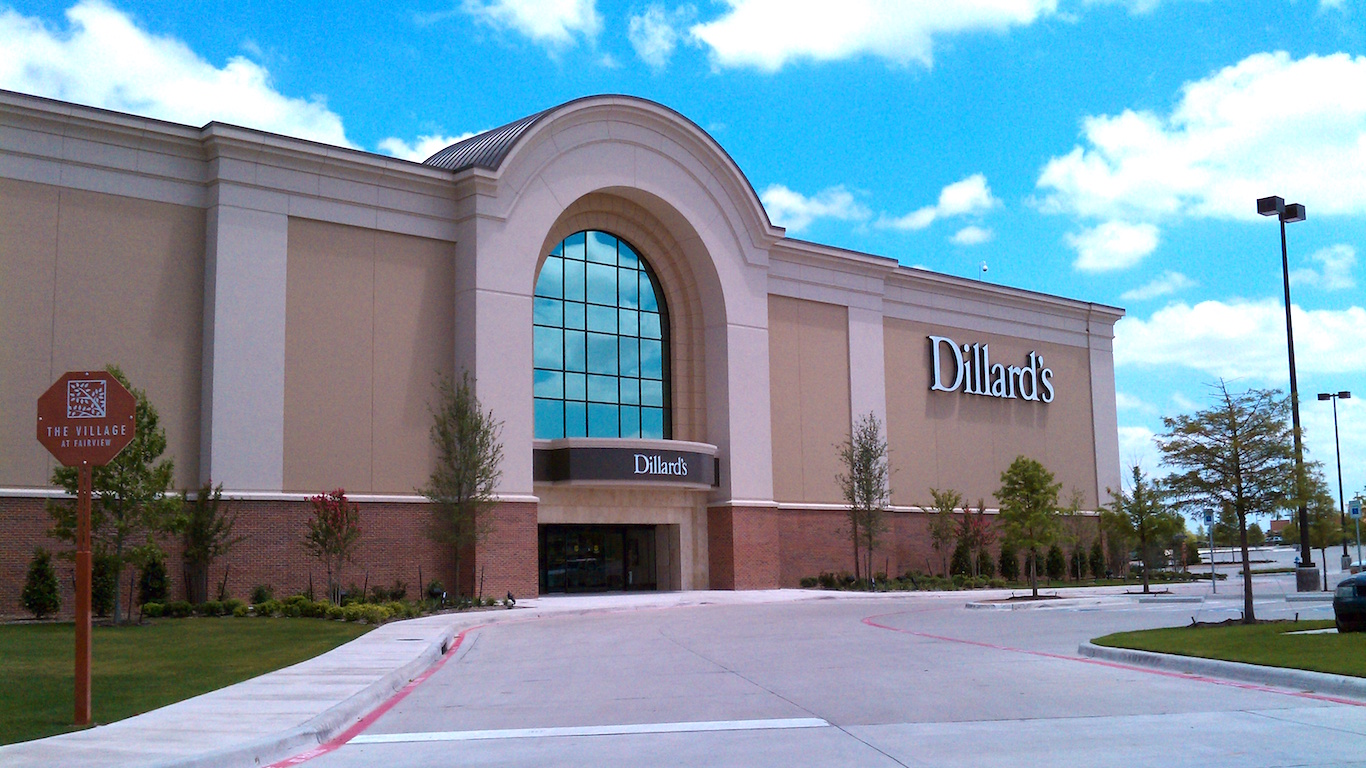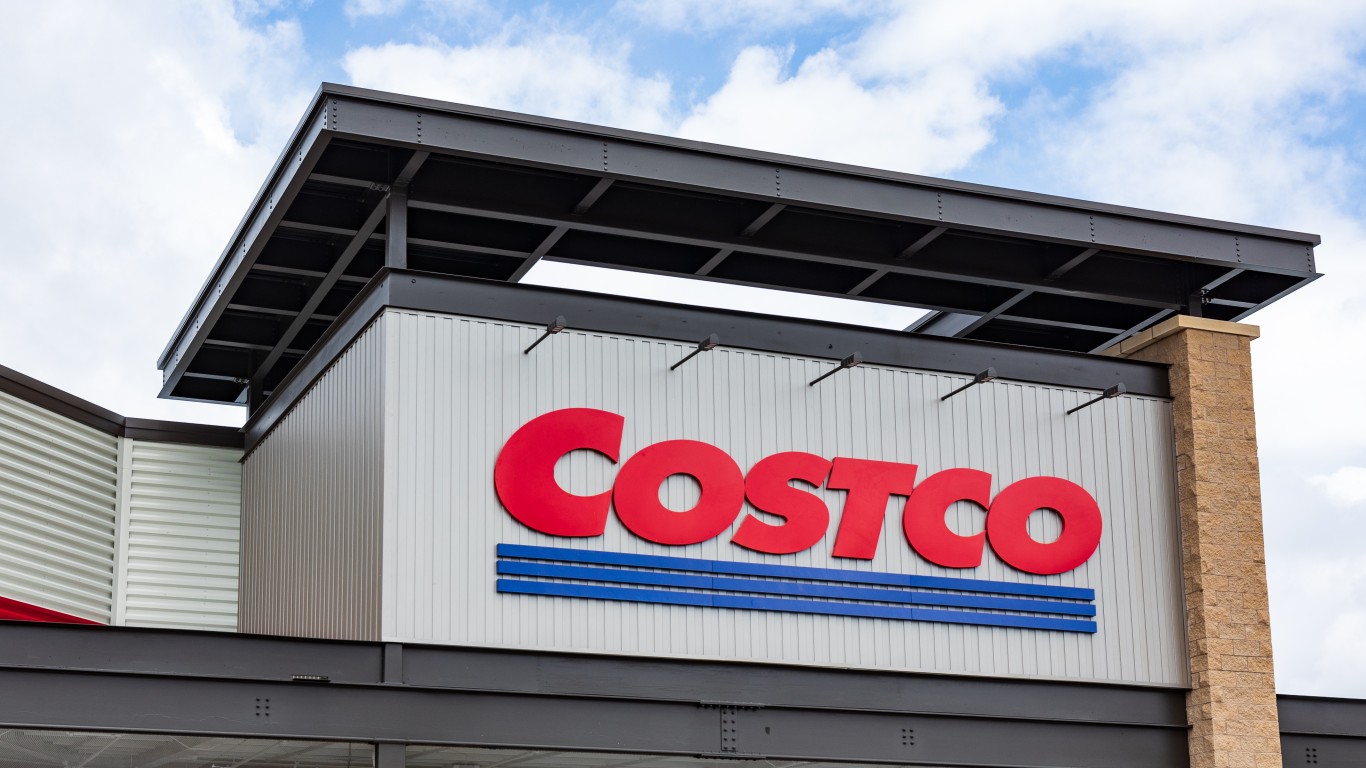
On Thursday, department store retailer Dillard’s Inc. (NYSE: DDS) announced a 50% boost to the company’s quarterly cash dividend. The new $0.15-per-share dividend will be paid in November to shareholders of record as of September 30.
As of Thursday, the company’s $0.10 quarterly dividend represented a yield of just 0.7%; the announced boost lifts that to a whopping 1.1%. Even with that gain, Dillard’s remains last among four traditional department store stocks: the Macy’s Inc. (NYSE: M) forward annual dividend yield is 9.7%, Kohl’s Corp. (NYSE: KSS) has a forward annual dividend yield of 5.66% and TJX Companies Inc. (NYSE: TJX) is expected to yield 1.68%. Sadly, Dillard’s 1.1% still trails.
On virtually any other financial metric, Dillard’s ranks either third or fourth in this group. Let’s look at the annual price-to-free-cash-flow (P/FCF) ratio. At TJX the ratio is 48.6, and Macy’s P/FCF ratio is 26.56. Kohl’s has a P/FCF ratio of 9.95, while Dillard’s is 6.76. That’s really cheap. Either the stock is a good value or it’s a value trap.
Dillard’s cash flow from operations in 2018 was $367.29 million and its capital spending totaled $137.06 million. Of that, more than $230 million in free cash flow, Dillard’s paid $11.1 million in dividends ($0.40 per share annualized). The shares lost 0.5% in 2018 ($0.31 per share). Dividend plus share-price loss is not much better than break-even, and there’s little sign that change is on its way.
The company’s cash hoard at the end of the July quarter was $118.1 million and its long-term debt totaled just $567 million. But Dillard’s store count is virtually the same now as it was at the end of 2014: 289 now versus 297 then. The company just announced that it will be closing three more stores.
Earlier this month, Dillard’s announced an operating loss of $1.59 a share in its second fiscal quarter, including a $4.9 million pretax gain from the sale of a store property. Merchandise sales were down 2.2% year over year and gross margin tumbled by 3.0%.
Members of the Dillard family own more than 99% of the firm’s class B shares that include the power to elect two-thirds of the company’s board. Class A shares are empowered to elect the remaining third. The board chair and chief executive is William Dillard II.
Dillard’s wants to avoid the fate of its once much-larger rival, J.C. Penney. However, buying shareholders affections with a 50% stock hike is not working in this case either. Shares traded down about 2.4% in the late morning Friday, at $54.87 in a 52-week range of $47.95 to $86.51. The 12-month consensus share price is $45.80.
In 20 Years, I Haven’t Seen A Cash Back Card This Good
After two decades of reviewing financial products I haven’t seen anything like this. Credit card companies are at war, handing out free rewards and benefits to win the best customers.
A good cash back card can be worth thousands of dollars a year in free money, not to mention other perks like travel, insurance, and access to fancy lounges.
Our top pick today pays up to 5% cash back, a $200 bonus on top, and $0 annual fee. Click here to apply before they stop offering rewards this generous.
Flywheel Publishing has partnered with CardRatings for our coverage of credit card products. Flywheel Publishing and CardRatings may receive a commission from card issuers.
Thank you for reading! Have some feedback for us?
Contact the 24/7 Wall St. editorial team.




